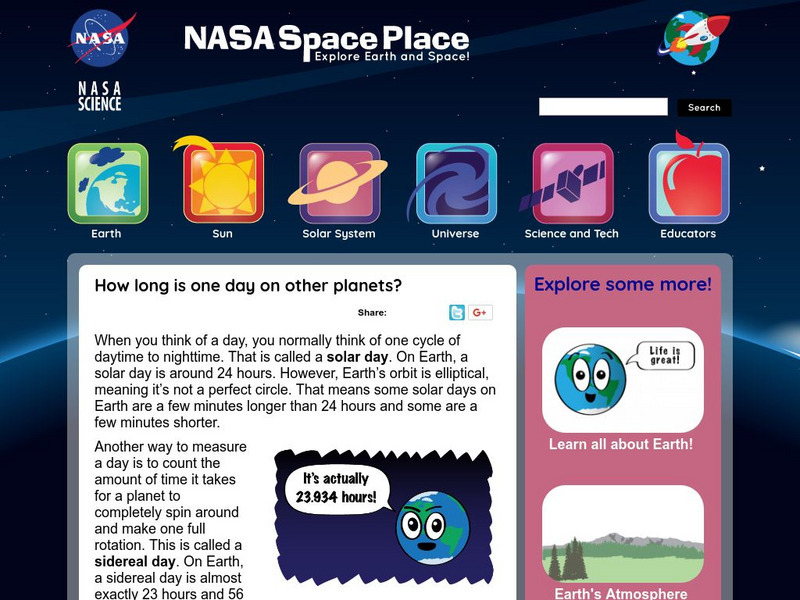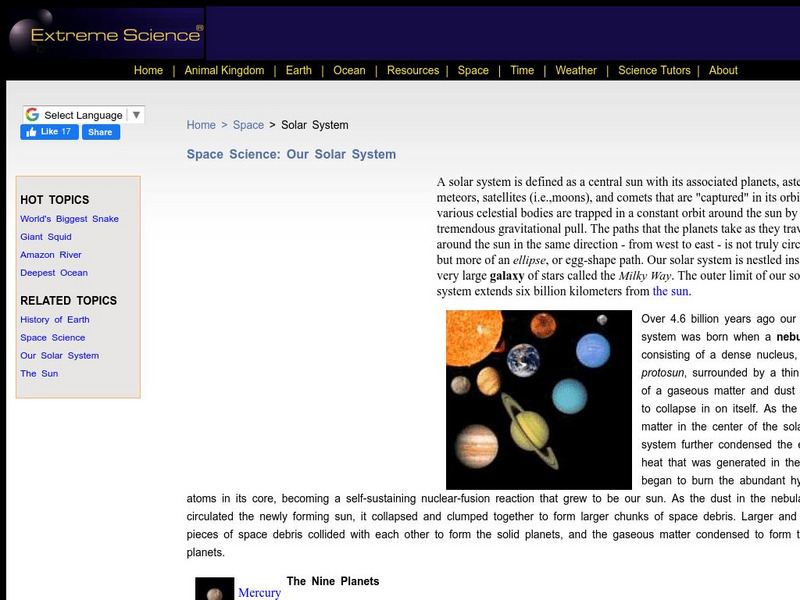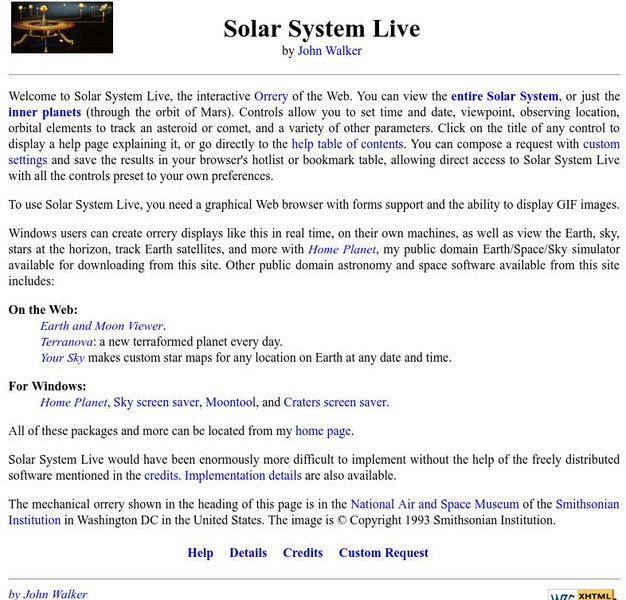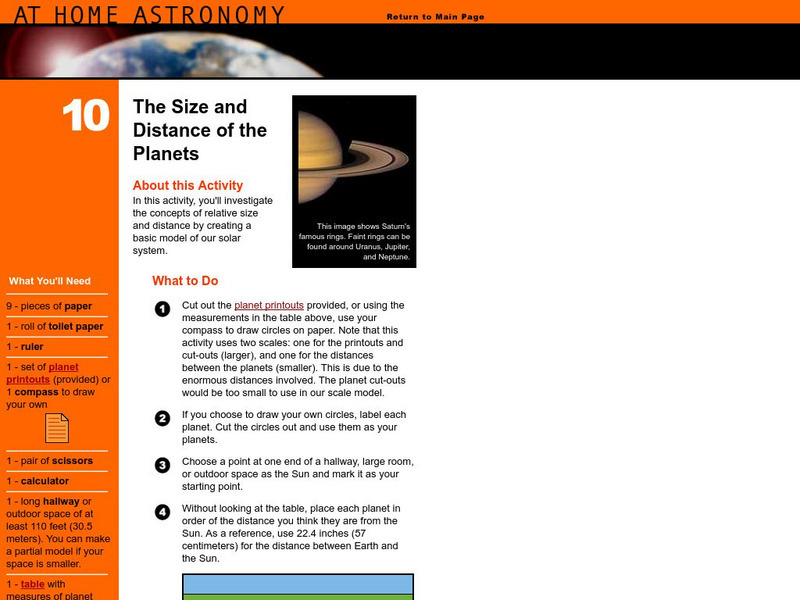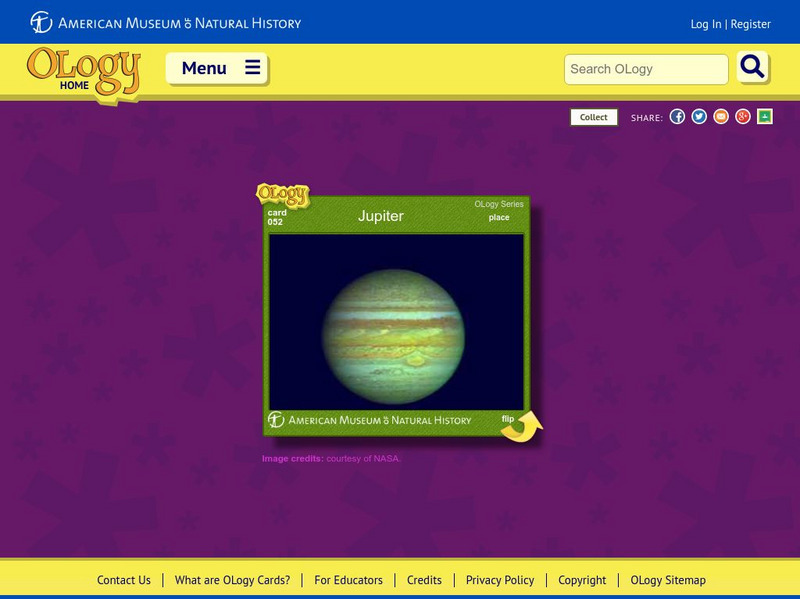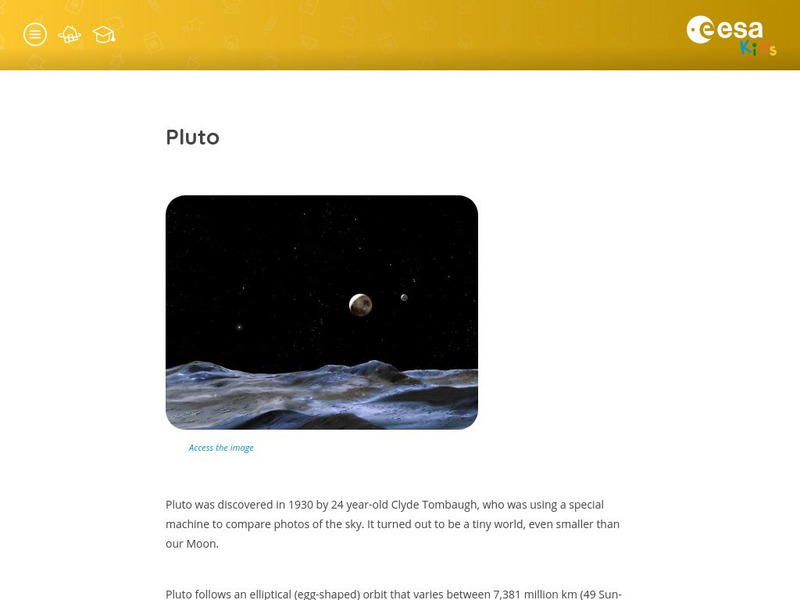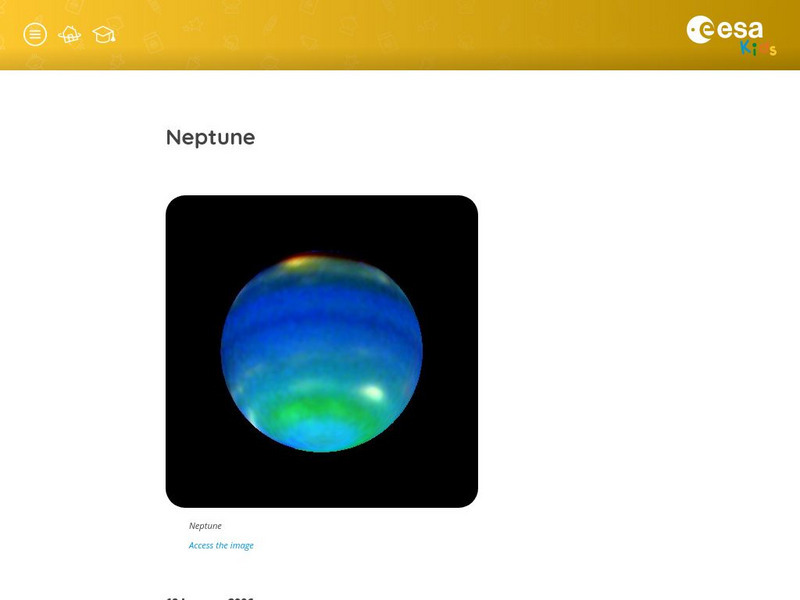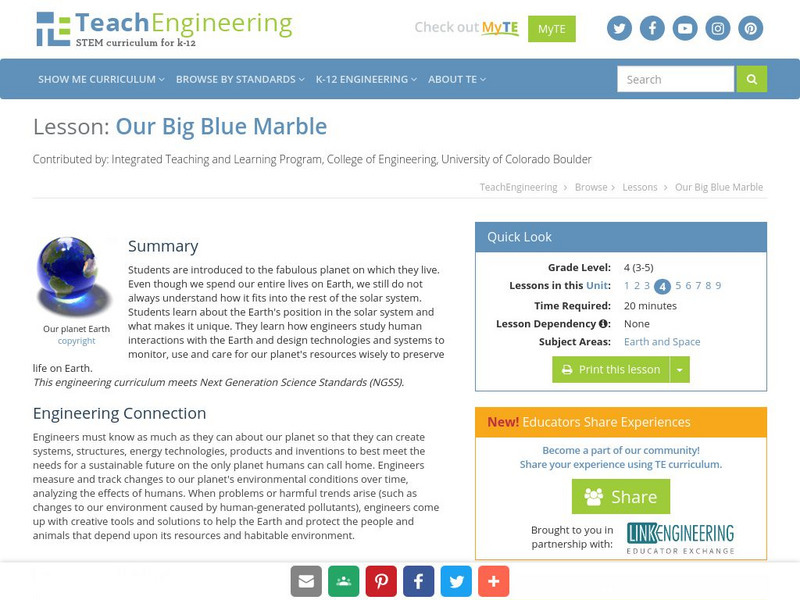Hi, what do you want to do?
ClassFlow
Class Flow: Solar System Quiz
[Free Registration/Login Required] This is an assessment flipchart that explores the location of planets in our solar system.
California Institute of Technology
Spitzer Science Center: Historias Desde Espacio: Premiacion a Las Planetas
All the planets are competing to see who is the best planet in the Solar System. Read the story in Spanish to learn the results of the pageant. Excellent source of information presented in a fun manner.
NASA
Nasa: Space Place: How Long Is One Day on Other Planets?
Here on Earth a day takes 24 hours. How long are days on other planets in our solar system? Find out here in three different ways, whichever meets your learning style the best.
NASA
Nasa: Sci Jinks: How's the Weather on Other Planets?
Compare weather here on Earth to other planets and moons in our solar system. You will find many similarities and differences.
Extreme Science
Extreme Science: Space Science: Our Solar System
Read about our solar system and its formation over 4.6 billion years ago. Find out about the planets, asteroids, meteors, satellites, and comets. More in-depth planet background can be accessed through links.
Enchanted Learning
Enchanted Learning: Zoom Astronomy: All About Space
A fantastic collection of information about the solar system. Includes information on all of the planets, the moon, the sun, asteroids, comets, meteoroids, and stars. Also find puzzles, a dictionary, quizzes, classroom activities, and...
American Museum of Natural History
American Museum of Natural History: Ology: Cosmic Cookies
Roll your mouse over the planets in our solar system to read a vignette about each. Then, link to the recipe for directions to create miniature planet cookies that look like the real thing.
Alabama Learning Exchange
Alex: If Earth No Longer Existed. . .
Students will work in cooperative groups to research characteristics of each of the planets in our solar system. Students will design a travel brochure outlining the characteristics of each planet. Each group will make an oral...
NASA
Nasa Space Place: All About Neptune
Learn fascinating facts about Neptune, the last of the planets in our solar system.
Fourmilab Switzerland
John Walker: Solar System Live
This planetarium program allows you to create an accurate model of the solar system with icons or pictures of each planet. You can specify a date in the past or the future, change the viewpoint to any latitude/longitude, and even view in...
Wonderville Media
Wonderville: Planets
There are eight planets in orbit around our Sun. These planets form our solar system. The eight planets are Mercury, Venus, Earth, Mars, Jupiter, Saturn, Uranus, and Neptune. There are also rocks, moons, comets, and other objects going...
University of California
Uc Berkeley: At Home Astronomy: The Size and Distance of Planets
In this activity, "You will investigate the concepts of relative size and distance by creating a basic model of our solar system." Planet printouts are provided and this site contains related links.
American Museum of Natural History
American Museum of Natural History: Saturn O Logy Card
Flip this interactive card to start learning about the planet Saturn. Answer multiple-choice and fact-or-fiction questions and review some fast facts about the second largest planet in our solar system.
American Museum of Natural History
American Museum of Natural History: Jupiter O Logy Card
Flip this interactive card to start learning about Jupiter, the largest planet in our solar system. Answer multiple-choice and fact-or-fiction questions and review some fast facts about Jupiter.
Cosmos 4 kids
Cosmos4 Kids: Solar System Details: Kuiper Belt
Explore space beyond Pluto in the Kuiper Belt region of our solar system. Find out about the space bodies that exist there and what our space missions have taught us about this far away region.
ABCya
Ab Cya: Orbital Order
Launch into space with Orbital Order! Amplify your knowledge of the Sun and the planets of our Solar System in this astronomical activity. Do you have what it takes to put the planets back in order?
European Space Agency
European Space Agency: Esa Kids: Our Universe: Pluto
A basic overview of the dwarf planet Pluto. Links to information about the other planets and objects in our solar system are included.
European Space Agency
European Space Agency: Esa Kids: Our Universe: Neptune
A basic overview of the planet Neptune. Links to information about the other planets and objects in our solar system are included.
NASA
Nasa Star Child: Jupiter the Largest Planet
Here at this site from NASA you can learn about the planet Jupiter! Read, or listen to, what makes Jupiter so special in our solar system.
European Space Agency
European Space Agency: Esa Kids: Our Universe: Satellites
A basic introduction to artificial, or man-made, satellites. Links to information about the planets and other objects in our solar system are included.
Curated OER
There Are Many More Objects in Our Solar System Than the Planets.
This comprehensive site delves into other aspects of our solar system besides the planets and the sun. Click on the topics on the right like solar winds, the heliosphere, the heliopause, asteroids, comets, and more.
TeachEngineering
Teach Engineering: Our Big Blue Marble
Students are introduced to the fabulous planet on which they live. Even though we spend our entire lives on Earth, we still do not always understand how it fits into the rest of the solar system. Students learn about the Earth's position...
Nine Planets
The Nine Planets: Comets
A detailed description of comets, their distinct parts, and the known comets in our solar system. Links are also provided for additional information on related subjects.
NASA
Nasa: Cassini: Mission to Saturn
NASA site details what sets Saturn apart from the other planets in our solar system and why the Cassini spacecraft mission is important.







